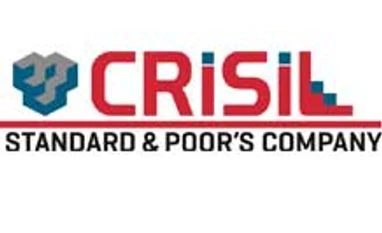The Centre needs to expand irrigation coverage, give a big push to crop insurance and make agriculture remunerative, rating agency CRISIL has said.
Ahead of the Union Budget proposals, it has also recommended extending the Direct Benefits Transfer (DBT) scheme to the food and fertiliser subsidies, and generating more non-farm employment.
The agency said that some broad areas require innovative policy solutions to restore the rural economy.
Irrigation, it said, covers only 47% of the country's cropped area, exposing the rest to monsoon shocks. Around 84% of pulses, 80% of horticulture, 72% of oilseeds, 64% of cotton and 42% of cereals are cultivated without assured irrigation.
The combined spending of Centre and states on irrigation has been 2% annually of their total spending in the past five years — also less than the 3% annually spent on this in the five preceding years.
In the 2015-16 Budget, the government had allocated Rs 5,000 crore for micro-irrigation, watershed development and the Pradhan Mantri Krishi Sinchai Yojana.
More From This Section
"Such spending needs to be encouraged and linked to employment generation. Focus on irrigation will require the government to deploy sustainable micro-irrigation schemes and creation of assets for rainwater harvesting and storage," CRISIL said.
As for crop insurance, which got Rs 2,600 crore in 2015-16, the agency wants this figure raised. An Assocham-Skymet survey (April 2015) found that only 19% of respondents had their crops insured.
The government recently launched the Pradhan Mantri Fasal Bima Yojana, a crop insurance scheme, operational after April 1. Effective implementation will be key to meeting the target of 50% coverage in the first two years. CRISIL said adequacy of coverage per farmer per crop will be critical to ensure its usefulness.
Other challenges include ensuring the transparent assessment of crop damage within a specified time following weather shocks, and the ability to adequately compensate for the losses within the shortest possible time.
The report also said the Centre should make agriculture profitable through easy availability of high-variety seeds at reasonable costs, reducing the cost of transportation, effective market pricing of produce, drought-proofing the sector by expanding irrigation cover and introducing the latest technologies.
CRISIL said in many pulses crops, the difference between cost of cultivation and output price had widened. In urad (gram), for instance, while output prices in the past decade have gone up by 12%, cost of cultivation in major producer states are up by 12 to 26%.
Another recommendation is for reorienting of expenditure from subsidies to public sector investment. In FY12 and FY13, for instance, public sector gross capital formation in agriculture grew by an annual average of 4.7% but spending on food subsidy rose nearly three times faster.
Additionally, the agency said, "extending the DBT scheme to include food subsidy will help curb losses due to leakages and result in significant savings for the government (and) ensure better targeting of food subsidies".
CRISIL also advocated generation of more non-farm employment by creating a safety net to mitigate losses to the sector in case of a weather shock and providing a long-term solution to impart skills training. It said policy focus needs to sharpen on other rural non-farm sectors such as food processing and tourism, as conventional sectors like construction, trade and transport that have historically acted as engines of rural non-farm employment growth are faltering.
)